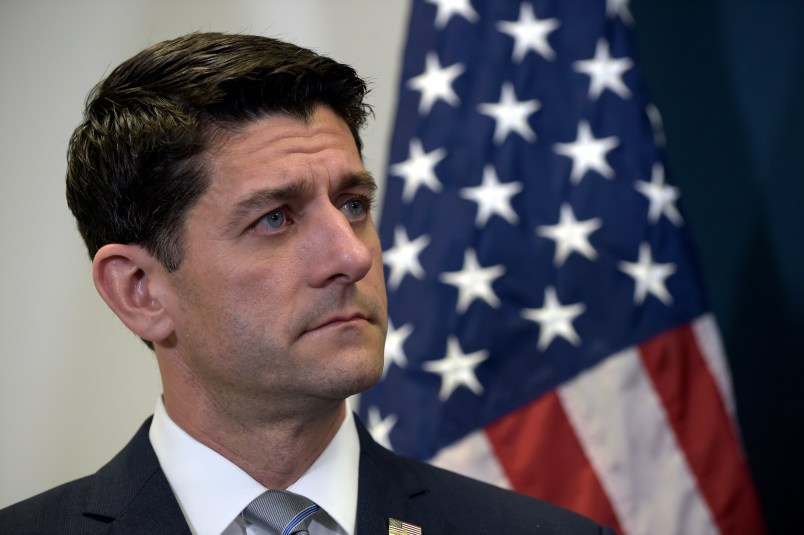The American Hospital Association on Friday aired concerns that Republicans in the House may not make enough sufficient changes to the bill to repeal and replace Obamacare to earn the group’s support and called on GOP leaders to reset their approach.
Rick Pollack, the President and CEO of the AHA, said at a press conference that Republicans need to “press the reset button and reboot” their legislation to repeal the Affordable Care Act. He outlined the three major issues that the hospitals group has with the House bill: a reduction in those insured, cuts to Medicaid funding and the repeal of taxes that helped fund the coverage provided by Obamacare.
“We cannot support the bill in its present form,” Pollack said.
He described the House’s approach to moving the legislation through the chamber as an “unusual process,” and said that House leaders do not appear to have been receptive to the hospitals group’s concerns about the bill.
“We have been able to meet with all of the leaders and express our views,” Pollack said. “It doesn’t appear as if they are making any major changes at this point that would accommodate the concerns that we have.”
Tom Nickels, the AHA’s executive vice president for government relations and public policy, said he expects the Senate will be more willing to accommodate the issues the hospitals group has with the legislation.
“I think we and everyone else have focused a lot of attention on the Senate,” Nickels said, though he added that the Tuesday Group, made up of moderate House members, has also been receptive to the AHA’s concerns.
Nickels was hopeful that senators would support an increase in the money provided through tax credits, a reduction in the cuts to the Medicaid program and an extension to the Medicaid expansion initiated through the Affordable Care Act.
Noting that some of the legislation’s defenders have protested the Congressional Budget Office’s analysis of the bill, Pollak said there’s no question that it significantly slashes funding for Medicaid, which he said was “extremely problematic.”
Pollack said that House Republicans are using “Medicaid restructuring as a vehicle to make significant reductions in that program.” He also argued that if Republicans were looking to give governors more flexibility in Medicaid implementation, they should use waivers instead of converting the system to block grants. He pointed out the block grant structure could hurt states who declined to expand Medicaid under Obamacare.
On the taxes instituted by Obamacare that would be repealed by the Republican bill, Pollack said, “We think that those tax revenue items ought to remain in the system.”
While Pollack said that the AHA is open to Republicans’ push to move away from subsidies to tax credits, he said that the credits in the Republican bill are not enough to help Americans afford insurance.
Nickels said that those tax credits provide “nowhere near enough money to buy health insurance” for older and poorer Americans to afford coverage. He said that Republicans need to dedicate more money to the credits and also look at making sure older Americans and people in certain areas of the country get the help they need.
In defending their legislation, Republicans leaders have insisted that phases two and three of their plan to repeal and replace Obamacare, which would consist of executive regulations followed by additional legislation, will address some issues that the initial bill does not. But Pollack lamented that the entire plan cannot be assessed without seeing the details, noting there are concerns that an additional piece of legislation cannot pass the Senate.
Ashley Thompson, the group’s senior vice president for public policy, said that Health and Human Services Secretary Tom Price could help stabilize the health insurance market with some regulations. But she argued regulation “won’t solve everything.”







Ryan’s nose sure looks like a reset button.
Paul Ryan is so anxious to have his ambitions realized, that he’s willing to screw his entire career in the process. When this health care abomination fails, he will be the first one thrown under the bus.
Anyone who votes for this travesty must be targeted for defeat in the mid-terms.
If they gut the ACA or slash Medicaid, rural hospitals will close in droves and a lot of Trump voters would lose access to care as well as coverage.
Here’s your “reset” button, bucko.